News and press releases
GRS seeks to provide clear and careful communication. Our demands on the comprehensibility and quality of information are based on the Guidelines for good science PR.
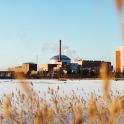
On 16 April 2023 at 01:00 in the morning, just one hour after the final three German nuclear power plants (NPPs) were shut down, the Olkiluoto-3 NPP in Finland began commercial operation. The reactor now feeds the electricity it generates into the Finnish power grid at market conditions. This was preceded by commissioning work and a 30-day trial run. With an electrical output of 1,600 megawatts (MW net), the plant of the European Pressurised Water Reactor (EPR) type is the most powerful reactor in the world.
What has happened in the field of nuclear energy last year? What developments can be observed internationally? As in the previous year, in 2022, a total of six new reactor units were connected to the grid. On the other hand, five units have been decommissioned, three of them in the UK alone. Accordingly, the installed net electrical capacity increased by 4,089 MW to 378,314 MW.
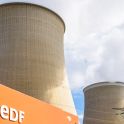
In the summer of 2022, more than half of the French nuclear power plants were temporarily off the grid. Electricity production in our neighbouring country collapsed, France had to buy considerable amounts of electricity from abroad - including from Germany, which in turn had an influence on the discussions about the temporary continued operation of the German nuclear power plants. But what about the French plants and their contribution to the electricity supply at the beginning of this year?
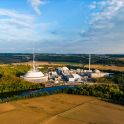
The remaining three operating nuclear power plants Emsland, Isar 2 and Neckarwestheim 2 were originally scheduled to be shut down on 31 December 2022 and subsequently dismantled. However, Russia's attack on Ukraine, which is in violation of international law, has led to significant price increases on the gas and electricity markets. The downtime of many French nuclear power plants and the insufficient expansion of the electricity grid to southern Germany have further aggravated the situation. Among other things, the overall situation has led to increased burdens on the electricity grids in Germany and Europe.
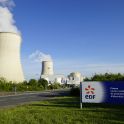
On 2 November 2022, the operator EdF reported a leakage in the primary system during a so-called pressure test at the Civaux 1 nuclear power plant (NPP).
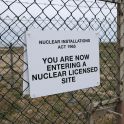
Many countries expect Small Modular Reactors (SMRs) to play their part in helping them become less dependent on fossil fuels for electricity generation. However, most SMR concepts are still at different stages of development. While safety aspects already play a role from the first sketches of ideas, security measures (required protection against malicious acts) are often only given a secondary role. Therefore, in a research project that has just started, GRS is dealing with the characteristics of physical protection and computer security of different SMR concepts and to what extent security requirements and concepts of conventional nuclear facilities can be applied to SMRs. In this way, GRS wants to build up expertise and identify open questions in the application of existing rules and regulations.
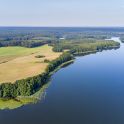
In Western Europe, heat and drought have had a firm grip on us for months now: we keep reading about forest fires, dried-up rivers and even problems with the supply of drinking water – phenomena that are likely to be exacerbated by climate change in the future and will not even stop at water-rich countries like Germany. Last week, for example, the Berlin Senate called on citizens to save water because of increasing drought. In the joint project go-CAM, a tool was developed with participation of a GRS research team that enables decision-makers in authorities and companies to define criteria for sustainable drinking water management.

As at 15 August 2022, 27 reactors in France are connected to the grid, 22 of which are operating at full capacity. That is less than half of the 56 reactor units that could be operated in our neighbouring country.
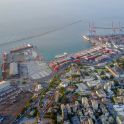
On 4 August 2020, a devastating explosion occurred in the port of Beirut, the cause of which was the improper storage of chemicals. After Germany had already supported Lebanon in the management of chemicals in the aftermath of this explosion, the Lebanese authorities approached Germany with an additional request for support in the retrieval and safe storage of radioactive waste. Within the framework of a cooperation project funded by the Federal Ministry for the Environment (BMUV), the responsible Lebanese authorities are supported by experts from the BMUV and an interdisciplinary GRS team from the departments Radiation Protection and Security.
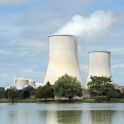
As of today (20 January 2022), the operator EDF has taken five of its reactor units off the grid due to cracks in the weld seams in the safety injection systems. According to statements by the French expert organisation IRSN, it cannot be ruled out at present that these crack indications are a generic problem that could also affect other plants. The following article provides an overview of the current state of knowledge. It is based on information from the French supervisory authority ASN, the operator EDF, and our French partner IRSN, with whom we maintain a close technical exchange via the European network ETSON.